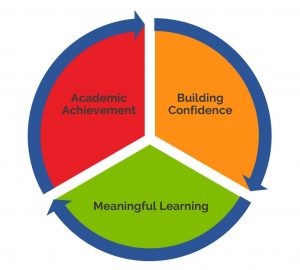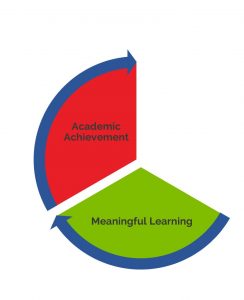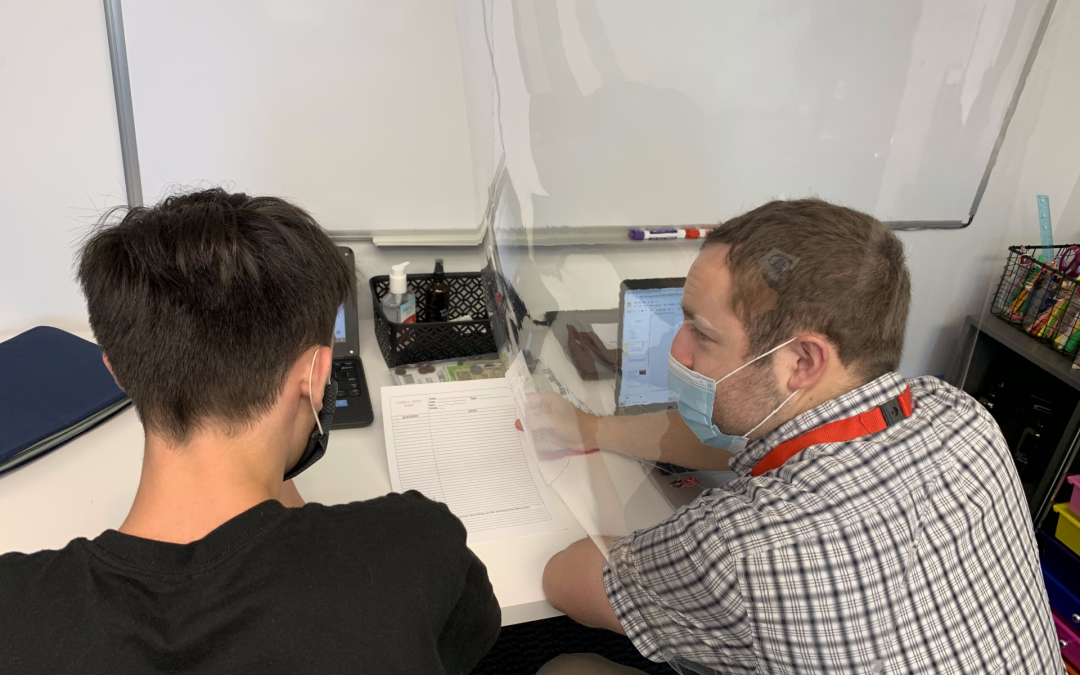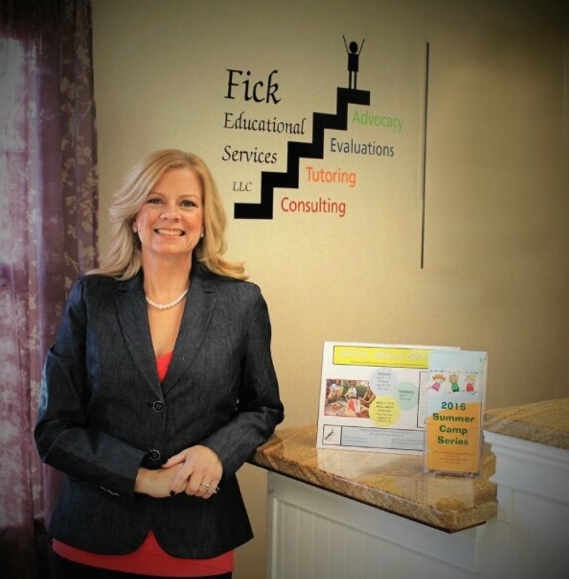At Fick Education, we emphasize building confidence more vocally than many other educators. Our motto is to “build confidence, achieve results”, after all! We don’t hide this fact because we know that confidence is a necessary step in the cycle of learning. We can spend every minute with our students drilling facts, concepts, and word problems, but we know learning does not exist in a vacuum.
As teachers, we’ve learned that affective factors can improve or even prevent learning. Affective factors in learning are those that exist within the student’s emotional and mental state. One of the most common examples of an affective factor altering a learning outcome is test anxiety; when a student takes a test they feels stressed, anxious, unable to focus and unable to remember things they know. We see it in our students regularly, where they recount a recent experience in school where they knew the content, but just could not focus beyond their anxieties and insecurities on the content or assessment to achieve at level consistent with their abilities.
When a student has gaps in content knowledge, we know how to resolve that. We can change instructional method, elevate to higher level thinking on the subject, or build foundational knowledge that is missing. Solving problems students have with affective factor in their learning relies on building confidence that they CAN achieve and overcome the internal and external obstacles in their learning.
In fact, experts have been emphasizing the relationship between confidence and academic achievement for decades. The effects are especially notable in STEM, English Language Arts, and language acquisition. The facts are that confident students will achieve more highly and consistently than peers who struggle with confidence, and we built that into our philosophy.
The Cycle of Sustainable Learning

So how does confidence fit into a sustainable cycle of learning? The graphic above highlights how we envision the continuous cycle of learning individuals experience. Beginning with Building Confidence, we can see how each segment affects each other and builds on each other.
- Building Confidence makes students more ready to undergo Meaningful Learning in the following ways:
- Through test-taking and study skills expands a student’s toolbox when they encounter difficult learning, and helps them approach learning in new ways that work for them
- Confidence helps minimize negative feelings towards learning. Students are less likely to feel frustrated when they believe they can learn, and are willing to learn for longer periods of time and with less pushing; they happily volunteer to learn.
- A confident student is internally motivated to learn. It is an opportunity for them to show their skills!
- When a student is confident in their ability, those effective barriers to learning are minimized! They can focus fully on the subject at hand and feel calm and ready to learn. They do not worry about IF they can learn the content, but instead approach content ready to succeed.
- Very importantly, a confident student is more ready to learn in new environments and styles. They can use new study skills, work collaboratively, and engage content in ways that make them learn faster and more efficiently. Confidence can mean shorter and better study session!
- Meaningful Learning directly affects academic achievement in the following ways:
- A student who has learning meaningfully and therefore highly internalized content are less likely to experience test anxiety.
- Content learned meaningfully can be expressed in multiple ways academically with success. Students can write an essay, answer true/false questions, give an oral presentation, create a visual, or tackle any way needed.
- When content is well-learned, students are less focused on remembering facts and more focused on the academic task at hand. Students are less likely to miss key steps in a project or test, and are more capable of managing time effectively.
- If a student learns content well, they build cumulative knowledge that builds in academic settings. This is especially noticeable in Math; students who learn foundational concepts will have less issues learning complex content like algebra, and will succeed on assessments that require use of foundational knowledge.
- Academic Achievement leads to increases student confidence in the following ways:
- After a series of success academically, students reinforce their self-esteem and approach learning with a more positive attitude.
- Positive results on assessments lead students to be achieve more closely to their capabilities, and they will feel more accurately represented in interactions teachers.
- Succeeding academically allows students the freedom to focus on their strengths, instead of remediating weaknesses. The idiom that we learn from our mistakes can be true, but it’s much easier to learn from successes. Successful students find it easier to stay in a cycle of success than struggling students can in catching up to their highest achieving peers.
- In that vein, students who are academically successful find less pressure to compare themselves to their peers, leading to a healthier self-esteem and confidence.
The cycle described above is common sense, but most importantly is sustainable. It builds on itself and supports itself at every stage and has benefits that go far beyond the immediate educational challenge at hand.
Many people focus on just the educational and academic portions of the cycle. Here’s what that looks like and here’s why we never neglect confidence building.
The Unstable Cycle of Learning

- Without confidence building, the student’s affective factors of learning are removed from the cycle. Students will disengage with the learning experience and frequently ‘forget’ content after an assessment. This leads to problems in subjects that build upon themselves, namely Math and English Language Arts.
- Students will also lose intrinsic motivation to learn. When learning is done solely for an academic task, there is no passion or joy and the process is a chore to be done.
- Once the student passes a test, there’s is a disconnect in the cycle. Rather than building a cycle of success, confidence, learning and more achievement, each subject/test/task/assignment becomes a new, isolated challenge to address.
- Teaching in a way that ignores student confidence inherently loses its focus on skill-building and learning strategies.
What does this Unstable Cycle Look Like in bad tutoring and teaching?
- This looks like a tutor just providing students with flashcards and drilling them until they can repeat them verbatim.
- Without attention to confidence, a tutor will not follow up in depth on previous assignments. Tutors may ask if students passed or got their target score, but the opportunity to celebrate successes or compassionately address struggles does not exist.
- The student is not empowered to voice their learning preferences, and teaching become less individualized.
- The roots of frustration are usually not adequately addressed, and rapport between educator and student suffers dramatically.
- When a student does not attain their goals, they further feel separately from a learning process that never took them into consideration. They disconnect from learning for the long term.
Build Confidence, Achieve Results
It’s that simple for us. Addressing confidence building let’s us include the student in their learning with compassion and purpose. Every session where we can build confidence has an impact that stretches days, weeks, and months into the future! A cycle of learning that doesn’t include confidence building may occasionally have success in the small scale, like a high score on a final exam or a single well-written essay, but we know that the only way to make an impact beyond a learning objective is to empower students to feel capable of success in the future.
We can be reached at fickeducation@gmail.com with any questions, and you can review our programs that utilize this philosophy here.

 Fick Educational Services is devoted to the educational needs of the children through individualized learning plans, tutoring and advocacy.
Fick Educational Services is devoted to the educational needs of the children through individualized learning plans, tutoring and advocacy.

